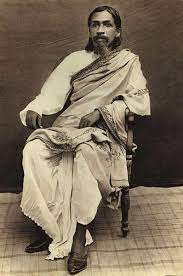Sri Aurobindo | 22 Dec 2021
Why in News
Recently, the Prime Minister has set up a 53-member committee to mark the 150th birth anniversary of spiritual leader Sri Aurobindo on 15th August 2022.
Key Points
- About:

- Aurobindo Ghose was born in Calcutta on 15th August 1872. He was a yogi, seer, philosopher, poet, and Indian nationalist who propounded a philosophy of divine life on earth through spiritual evolution.
- He died on 5th December 1950 in Pondicherry.
- Education:
- His education began in a Christian convent school in Darjeeling.
- He entered the University of Cambridge, where he became proficient in two classical and several modern European languages.
- In 1892, he held various administrative posts in Baroda (Vadodara) and Calcutta (Kolkata).
- He began the study of Yoga and Indian languages, including classical Sanskrit.
- Indian Revolutionary Movement:
- From 1902 to 1910 he partook in the struggle to free India from the British. As a result of his political activities, he was imprisoned in 1908 (Alipore Bomb case).
- Two years later he fled British India and found refuge in the French colony of Pondichéry (Puducherry), where he devoted himself for the rest of his life to the development of his “integral” yoga with an aim of a fulfilled and spiritually transformed life on earth.
- Spirituality:
- In Pondichéry he founded a community of spiritual seekers, which took shape as the Sri Aurobindo Ashram in 1926.
- He believed that the basic principles of matter, life, and mind would be succeeded through terrestrial evolution by the principle of supermind as an intermediate power between the two spheres of the infinite and the finite.
- Literary Works:
- An English newspaper called Bande Mataram (in 1905).
- Bases of Yoga
- Bhagavad Gita and Its Message
- The Future Evolution of Man
- Rebirth and Karma
- Savitri: A Legend and a Symbol
- Hour of God
